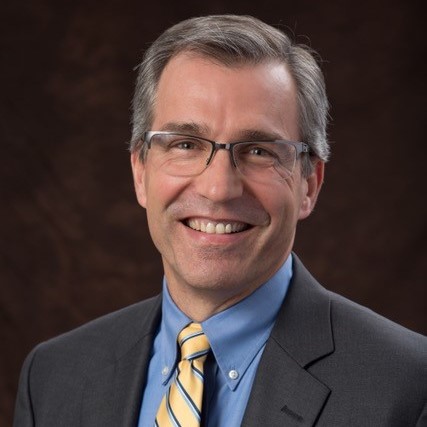The Value of Integrated Spiritual Care

Since the latest COVID-19 surge, I’ve noticed a pattern in the way conversations or meetings often begin. Someone will ask, “So how is everyone doing?” The responses often include, “You know….” “I’m here.” “Whew.” Sometimes it’s not even words: “Nnnngth.” “Mmmmph.”
Our people have been tried and tried again, and there is a collective exhaustion that does not seem likely to abate any time soon. That said, we also have wonderful resources within ACPE: counselors and psychotherapists, colleagues who, though they, too, are exhausted by the relentlessness of the last few months, have practices and services that can be of great value to educators, students, and others. For those who want to see someone face to face, take a look in our directory for a professional near you. For those who are comfortable with using video, many of our members are offering their service through web portals.
Even as we recognize the important work of our counselors and psychotherapists, we are also aware of the need to advocate for their services. For example, I recently spoke with one of our members who has been a therapist for most of her professional life, but due to declining reimbursement from insurance she is having to explore other ways to earn a living. She bills at $150 an hour, but insurance only reimburses her at $65 an hour. This economic reality has led many members to stop dealing with insurance all together, which of course makes their services that much more difficult to access for those with lesser means. How can we as an association be more active in advocating for a fairer reimbursement model, and where should we start?
Perhaps it can begin within the academy. Many seminaries and divinity schools have not filled positions in pastoral theology and/or pastoral psychology when long-serving faculty have retired. Some have relied on contingent or adjunct faculty; others simply are no longer offering the courses. At the same time, congregational data shows that spiritual care is often the most important element of being a part of a faith community for its members. Our partners at the Society for Pastoral Theology have seen a significant decline in membership over the last decade, due in large part to these same retirements and lack of institutional support. How can ACPE advocate with the Association of Theological Schools and other partners to build a robust educational pipeline, especially as we anticipate years of mental health needs that have emerged or been exacerbated by the last two years?
Perhaps we can start with the Spiritually Integrated Psychotherapy (SIP) and Pastoral Care Specialist programs. SIP already has several graduates; how can we enlist these members as ambassadors for the kind of spiritual care the world so desperately needs right now? How can we partner with academic programs, with other professional associations (Marriage and Family Therapy, Social Work, Psychology, etc.), and across institutions (large systems) to promote the value of integrated spiritual care as an important part of human health and well-being?
We currently have 281 Psychotherapist Members, 225 Practitioner Members, and 295 Student Members of ACPE. The world needs this work, and we have a unique opportunity to help promote it.
Trace Haythorn is the Executive Director of ACPE and can be reached at Trace.Haythorn@acpe.edu
